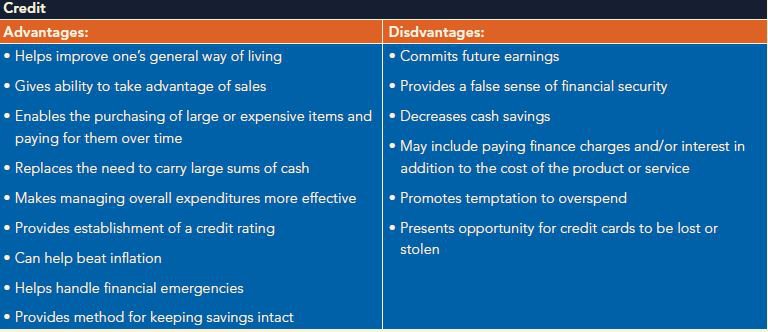Discover Top Credit Unions in Wyoming: Your Guide to Financial Services
Wiki Article
The Ultimate Overview to Recognizing Credit Report Unions

Debt unions stand as special monetary entities, rooted in principles of mutual support and member-driven operations. Past their fundamental values, understanding the elaborate workings of credit history unions involves a much deeper expedition. Deciphering the complexities of membership qualification, the advancement of solutions supplied, and the distinctive benefits they bring needs a detailed exam. As we browse through the complexities of cooperative credit union, an insightful journey waits for to clarify these member-focused establishments and exactly how they differ from standard banks.
What Are Credit History Unions?
Cooperative credit union are member-owned banks that provide a variety of banking solutions to their members. Unlike typical financial institutions, credit history unions run as not-for-profit organizations, meaning their primary emphasis gets on serving their members as opposed to maximizing earnings. Participants of a lending institution generally share a typical bond, such as helping the exact same company, coming from the very same neighborhood, or belonging to the very same organization.Among the essential benefits of credit report unions is that they typically use greater rate of interest on savings accounts and lower rate of interest on fundings contrasted to financial institutions. Credit Unions in Wyoming. This is because lending institution are structured to profit their members directly, allowing them to hand down their incomes in the kind of much better prices and fewer costs. Furthermore, cooperative credit union are recognized for their individualized client service, as they prioritize developing relationships with their participants to recognize their distinct monetary requirements and objectives
History and Advancement of Cooperative Credit Union
The origins of member-owned financial cooperatives, recognized today as cooperative credit union, trace back to a time when communities looked for options to typical banking organizations. The idea of cooperative credit union originated in the 19th century in Europe, with Friedrich Wilhelm Raiffeisen typically credited as the pioneer of the cooperative financial activity. Raiffeisen started the first recognized lending institution in Germany in the mid-1800s, highlighting area support and self-help concepts.The evolution of cooperative credit union proceeded in The United States and Canada, where Alphonse Desjardins developed the very first lending institution in Canada in 1900. Shortly after, in 1909, the first U.S. cooperative credit union was formed in New Hampshire by a team of Franco-American immigrants. These early credit score unions operated the basic concepts of shared support, democratic control, and participant possession.
In time, credit report unions have expanded in popularity worldwide because of their not-for-profit structure, concentrate on serving participants, and using competitive monetary Learn More product or services. Today, credit history unions play a crucial function in the monetary industry, offering community-oriented and accessible financial alternatives for businesses and individuals alike.
Subscription and Qualification Criteria
Subscription at a credit union is generally restricted to people meeting specific eligibility criteria based on the organization's founding principles and governing requirements. Some credit rating unions may just offer individuals who live or work in a certain location, while others may be customized to staff members of a particular company or members of a specific organization.Furthermore, lending institution are structured as not-for-profit organizations, implying that their primary goal is to serve their members instead than create revenues for investors. This concentrate on member service frequently equates into more individualized interest, lower fees, and competitive rates of interest on loans and cost savings accounts. By meeting the qualification criteria and ending up being a member of a lending institution, people can access a series of monetary items and services tailored to their specific needs.
Solutions and Products Provided
Among the vital aspects that establishes lending institution apart is the diverse variety of economic product and services they use to their members. Credit score unions typically give standard financial solutions such as cost savings and checking accounts, lendings, and charge card. Participants can additionally benefit from financial investment solutions, consisting of pension and financial planning support. Lots of cooperative credit union supply competitive passion prices on financial savings accounts and loans, in addition to lower fees compared to standard financial institutions.Additionally, cooperative credit union often offer hassle-free online and mobile banking choices for participants to easily manage their finances. They might supply advantages such as shared branching, enabling participants to access their accounts at various other credit history unions throughout the nation. Some cooperative credit union likewise provide insurance policy Visit This Link items like life, automobile, and home insurance policy to assist participants secure their possessions and liked ones.

Advantages of Banking With Lending Institution
When considering financial institutions, exploring the advantages of banking with credit scores unions reveals unique benefits for members seeking personalized service and affordable rates. Unlike big financial institutions, credit rating unions are member-owned and focus on building solid partnerships with their members. On the whole, financial with a credit history union can offer a more individualized, cost-effective, and member-centric financial experience.Final Thought
In final thought, credit unions stand out as member-owned monetary institutions that focus on offering their members over taking full advantage of earnings. With origins dating back to 19th century Europe, credit unions adhere to concepts of common assistance and participant possession.
Credit report unions are member-owned monetary establishments that use a range of banking solutions to their participants. The principle of credit history unions stem in the 19th century in Europe, with Friedrich Wilhelm Raiffeisen often credited as the pioneer of the cooperative banking movement.The sites evolution of credit scores unions continued in North America, where Alphonse Desjardins developed the first credit rating union in Canada in 1900. Credit unions typically offer traditional banking solutions such as savings and inspecting accounts, financings, and credit cards.When taking into consideration monetary institutions, discovering the advantages of banking with credit rating unions exposes special advantages for members looking for tailored solution and competitive prices.
Report this wiki page